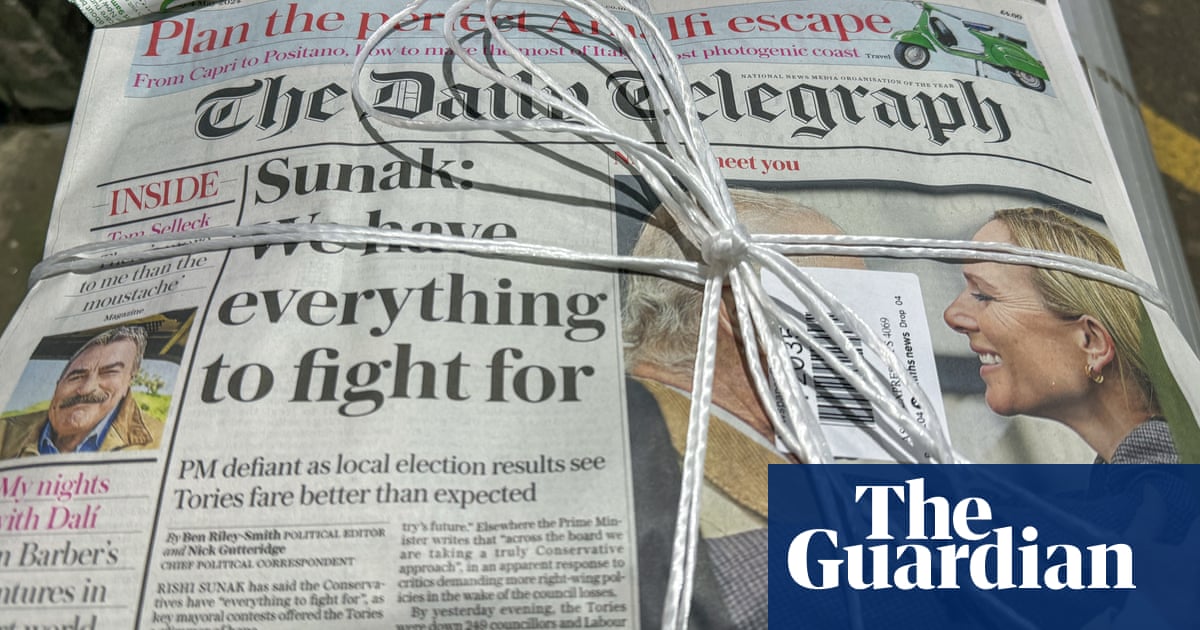A consortiumled by the US private equity company RedBird Capitalhas agreed to buy the Telegraph for £500m, bringing an end to two years of uncertainty over the future ownership of the titles.
The company’s founder, Gerry Cardinale, has signed a deal in principle that will result in the Daily Telegraph andSunday Telegraphcoming under the ownership of a consortium that includes British investors.
“This transaction marks the start of a new era for the Telegraph as we look to grow the brand in the UK and internationally, invest in its technology and expand its subscriber base,” Cardinale said. “We believe the UK is a great place to invest [and] we have tremendous conviction in the growth potential of this incredibly important cultural institution.”
RedBird has been in talks with potential investors including Lord Rothermere’s DMGT, the owner of the Daily Mail, Metro and New Scientist, about taking a stake of 9.9%.
Rothermere, who tried to buy the titles in 2004, pulled out of the auction last summer because DMGT feared it would be pulled into a long and complex battle over competition issues and political hurdles.
RedBird said that it remains in talks with “select UK-based minority investors with print media expertise”.
RedBird Capital – which holds various investments including a stake in the parent company of Liverpool FC and is seeking to jointly acquire the TV and film business Paramount – is buyingTelegraph Media Groupfrom RedBird IMI.
The US private equity group contributed a quarter of the funding to RedBird IMI, which is controlled by Sheikh Mansour bin Zayed al-Nahyan, the vice-president of the United Arab Emirates and the owner of Manchester City football club.
RedBird IMI was forced to put the titles back up for sale last spring after the British government passed a law blocking foreign states or associated individualsfrom owning newspaper assets in the UK.
The Abu Dhabi-based RedBird IMItook control of the publishing groupin November 2023 after agreeing to pay debts owed by the previous owners, the Barclay family, to Lloyds Banking Group.
IMI is to retain an investment in the Telegraph and last week the government said it would allow foreign states to ownstakes of up to 15% in British newspapers.
No final deal for the Telegraph has yet been signed and a takeover will face regulatory hurdles, including a public interest test that will be triggered by the culture secretary, Lisa Nandy.
Sign up toBusiness Today
Get set for the working day – we'll point you to all the business news and analysis you need every morning
after newsletter promotion
Dovid Efune, the owner of the New York Sun, who entered a short period ofexclusive takeover talks late last yearbefore failing to raise funds, is still attempting to mount a new bid with support from the multimillionaire Brexit backer Jeremy Hosking.
His bid also has the support of the former UK chancellor Nadhim Zahawi, who was originallyinvolved as a “middleman”introducing RedBird IMI to the Barclay family, and had hoped tobecome the chair of the newspaper group.
RedBird said that it has ambitious plans to expand the global reach of the Telegraph, particularly in the US.
“With the right plan and the right investment by ambitious new owners, this venerable title can look forward to an era of unprecedented success,” Chris Evans, the editor of theDaily Telegraph, said.
